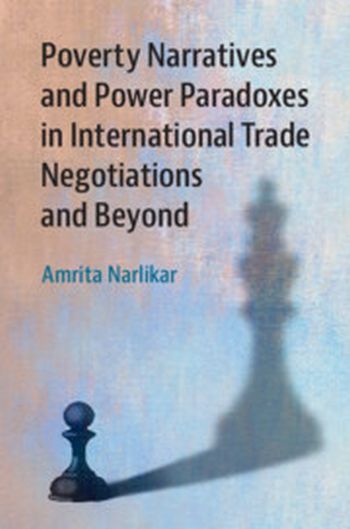
In this work, Amrita Narlikar argues that, contrary to common assumption, modern-day politics displays a surprising paradox: poverty - and the powerlessness with which it is associated - has emerged as a political tool and a formidable weapon in international negotiation. The success of poverty narratives, however, means that their use has not been limited to the neediest. Focusing on behaviours and outcomes in a particularly polarising area of bargaining - international trade - and illustrating wider applications of the argument, Narlikar shows how these narratives have been effectively used. Yet, she also sheds light on how indiscriminate overuse and misuse increasingly run the risk of adverse consequences for the system at large and devastating repercussions for the weakest members of society. Narlikar advances a theory of agency and empowerment by focusing on the life-cycles of narratives and concludes by offering policy-relevant insights on how to construct winning and sustainable narratives.